
Books have always been my happy place.
From when I was a kid at school, battling bullies and the loneliness of having no friends – who wants to be friends with the object of the bullying? NO ONE – through to this year when I nursed my mother through the ovarian cancer which eventually claimed her life, reading has been a source of solace, happiness, comfort, creating for me a sense that life may be horrifically awful right now but it won’t always be like this.
That’s because books take you far away from yourself, and while they very rarely directly address your specific situation, this distance from your own troubles which is liberating in and of itself, gives you a perspective you might otherwise lack, the perspective that allows to find a solution to what ails you, or at least, a way to live with it.
The books I have encountered this year certainly fulfilled this brief, running the gamut from sci-fi soap operas to seeringly real addressing of the human condition, and the quirky spots of hope in-between, with all of them providing that cosy place of away-ness that has always made my life that little brighter and more bearable.
This is especially true of the twenty books that I have selected as my best of the year, each of them speaking to them words of truth or escape, of hope and the grim reality of things, and all written with such eloquence and luminous insight that not having them in my life feels all but unthinkable.
(1) The Book of M by Peng Shepherd

With an ending that defies predictions, and a propulsive need to record and remember even as everyone without shadows forgets, The Book of M is that rare and brilliantly-wonderful thing – a fresh take on the apocalypse, inspired by one of four sacred Hindu texts the Rigveda, that acknowledges every step of its deeply-affecting, immensely-readable way that at its heart the end of the world is less about monsters and death than it is about how people preserve who they are and what they value.
In a world where we often feel, despite social media and 24/7 news cycles, more apart as a people than ever, The Book of M is a reassuring reminder than our greatest strength lies in our connectedness and how we remember, honour and value the fantastic gift we are given whenever we come to know, truly know, and love a fellow human being.
(2) Postmarked Piper’s Reach by Jodi Cleghorn and Adam Byatt

In his 1953 novel The Go-Between, L. P. Hartley rather sagely observes, and no doubt from a position of much lived, wisdom-gathering experience, that “The past is a foreign country; they do things differently there.”
As opening lines go they don’t get much better, not simply because of the poetic resonance but because of the truth encapsulated within, a bittersweet reflection that the past and present, though inextricably linked and bearing certain commonalities, are vastly different from each other, separated not just by the passage of time but by life experience and the growth and change, good and bad, that brings.
The authenticity of this observation is nowhere better distilled in recent times than in Postmarked Piper’s Reach, the debut novel by Adam Byatt and Jodi Cleghorn, which explores the vast gulf that exists between who we once were and who we are now, and whether it is even possible to bridge the distance between the two (and whether it is wise to even attempt such a thing).
(3) Snake Island by Ben Hobson

But as Ben Hobson beautifully explores in his second novel, Snake Island, with a candour, insight and empathy that will leave you breathless and nodding your head and heart with recognition, what we aim for and what we end up holding in our hands are often two very different things.
Writing with a sparse, honest beauty that captivates and immerses you, Snake Island is a tale of vengeance and redemption, of grasping for ideals that often feel too far out of reach; it is also that all-too-rare literary creature, a novel that is glaringly honest about the human condition while being rich with understanding and insight, a story which wears its heart on its sleeve but is knowing in its appreciation of what makes us human, both idealised and real.
(4) The Ten Thousand Doors of January by Alix E. Harrow
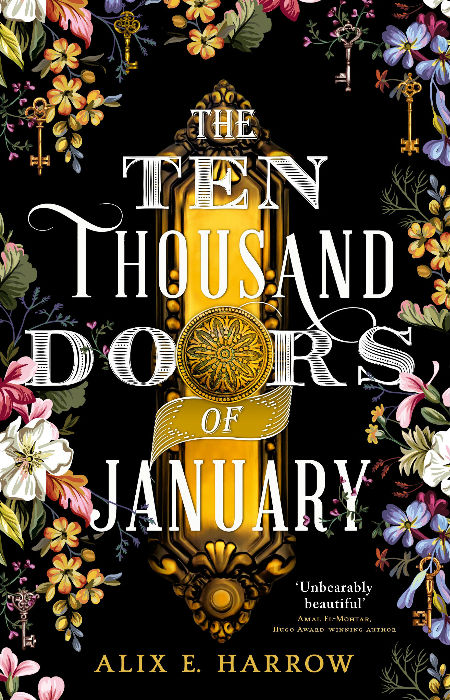
This is a book that feels utterly unique in its execution and outlook and yet comfortingly familiar especially if like this reviewer you long ago realised that stories possessed the ability to take your life in directions that could change you in the most fundamental of ways, even during those times, like the neverending school years that blighted my childhood, when it seemed like change was never going to arrive and your literarily-fed dreams were going, despite hope ascendant, going to amount to precisely nothing.
The Ten Thousand Doors of January is a stunningly beautiful gift that is as captivatingly written as its story is enthralling, a book that is the very thing it holds aloft as a treasured and impossibly rare, alluring thing worthy of endless veneration – a repository of the stories that shape us, change us, and take us on through times hard and unyielding, holding out the hope that perhaps these stories are more real than we have given them credit for, and that perhaps, we would be best to take them literally and see which magical, life-transforming and otherworldly places they can take us.
(5) Queenie by Candice Carty-Williams

You leave Queenie wishing fervently that you could spend more time with this remarkable young lady who is brave and true to herself beyond words, but also more importantly aware of a world beyond your own, reminded again how we all struggle with this business of being human, but that it is different for each of us, depending on who we are, our cultural and societal influences, family, friends and our willingness to tackle the demons within.
Queenie is one those superbly well-written novels that will stay with you long after you have finished reading it, touching something deep within and leaving you glad, very glad, that you got to spend time with a young woman who is funny, brave, clever and vulnerable, and whose journey is so captivatingly raw, engaging and honest that you’ll wonder how you got by in life without knowing her.
(6) The Nancys by RWR McDonald

There’s the escapist fun of playing Nancy Drew, which Pike, Tippy and Devon do beautifully, evoking the ever-escalating jigsaw puzzle fun of the novels to a headily-nostalgic degree, and there’s all kinds of profound sadness and loss.
The two shouldn’t go together as well as they do, but McDonald makes it work with aplomb in The Nancys, mirroring the way life is a melange of happy and sad, good and bad, past and present; sure, Tippy is learning it way earlier than most, but she has Pike and Devon by her side, who offer as much love and support as they do fun, lighthearted diversion.
The Nancys is warmhearted, charming joy, a blanket of cosyness, love and inclusion that is a much-needed reminder than even when life comes unceremoniously crashing down around you, that that’s not the end; even when the hard truths of life must be faced, it can be done with the ones you love around you, a brilliantly-sequined T-shirt in your wardrobe, and Nancy Drew by your side and in your heart, which is, when you think about it, exactly how life should be.
(7) Daisy Jones and the Six by Taylor Jenkins Reid

Life happens, mistakes are made and things begin and end, sometimes with great fury and combustion, and that’s OK, and life goes on, as Daisy Jones & The Six illustrates so beautifully that you honestly wish you could spend the rest of your life talking to these people.
Purely because they’re alive, they’re real, they feel like all of us at one point or another, and there’s something fiercely compelling about people laying all their skeletons bare and facing up to the demented dances of their demons, and owning it all and moving on.
It feels desperately, amazingly ALIVE, gloriously, imperfectly, messily alive, and so, as a result, is Daisy Jones & The Six, one of those rare books that inhabits its world so artfully, truthfully and knowingly that reading it transports far away from where you are even as it digs deep into your psyche and asks you “Would you have behaved any differently given the circumstances?”
(8) Wanderers by Chuck Wendig
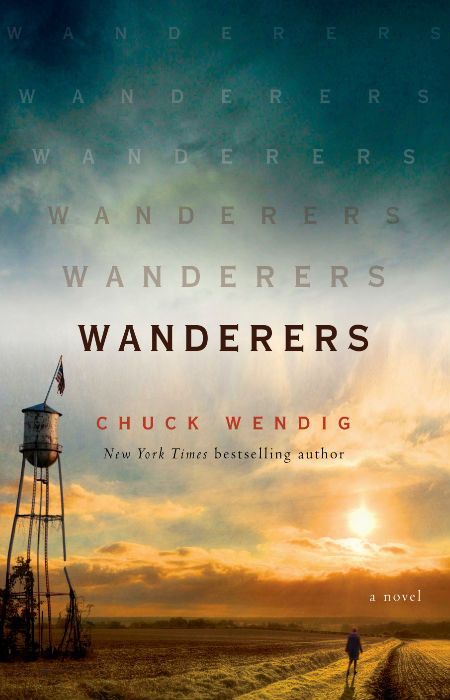
An apolcaypse is not small thing.
Quite how small it isn’t comes home in full force in Chuck Wendig’s masterful almost-800 pages novel Wanderers which starts small and intimate and ends up becoming, like the apocalypse against which it plays out, as bigger than Ben Hur.
For all its immense and epic storytelling, this behemoth of a story manages to retain an intimacy and small-scale emotional evocativeness that speaks to the fact that while end of the world disasters may be monumentally big, people tend to experience them on smaller, more small “d” experiential levels.
The novel speaks eloquently about the fact that we are, after all, resolutely human at the very best and very worst of times, and Wendig captures that contradictory humanity in all its life-affirming, self-destructive glory, giving us in the process one of those classically epic stories that will stand the test of time.
However long that is, of course.
(9) Bodies of Men by Nigel Featherstone
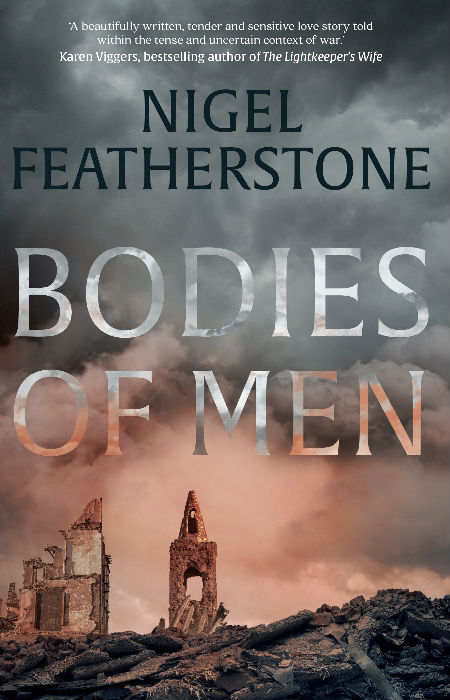
It is no accident, I suspect, that Featherstone has chosen to set his quietly-enunciated but emotionally-rousing story in wartime since in 1941 this is the most extreme example of traditional masculinity in all its misbegotten, twisted, broken, strident glory.
It could just as easily have worked in other settings but there is something about a place and time like this that forces both men to confront, challenge and then embrace their inner voices which tell them, social convention of all kinds be damned, that what they have, know and feel is far more real that the paper dragons of manliness that have sustained them until now (or rather not, since both men are diminished by ideals that demand much and give precious little to nothing in return.
A towering work that accomplishes so much 324 exquisitely well-judged pages, Bodies of Men is testament to the fact that beauty can emerge in the most extraordinary of places, that love finds expression in ways so multitudinous that we do it a disservice by corralling it within narrow confines, and that the greatest thing we can often do for ourselves is to ask “why not?” and keep pushing forward until we get an answer.
(10) Invisible Boys by Holden Sheppard

Sheppard is unflinchingly truthful about how easy it is to feel like death is the only way out but at the same time, he speaks upliftingly about how much hope, lust, the thrill of the authentic and the new and the wonder of what might be if you can only get there, past the myriad obstacles of your thought processes and bigotry and lack of understanding of those around you, counter this in ways that seem to run against all “sound” reason at the time.
But then doesn’t that speak to the delightfully contrary and tenacious power of the human soul?
You can throw the very worst of things at it, all of which for a young man must often be experienced in a closeted bubble so suffocatingly intense that seeing and feeling clearly through it feel all but impossible, and yet somehow it bounces back and pushes on froward, hoping, praying, desperately pleading for some kid of break.
Invisible Boys feels like an exquisitely well-written, heartfelt, real searchlight on your soul if you’re a gay man (and even if you’re not, it’s a valuable, eye-opening look into what your gay sons, nephews, etc are going through as they grow up, one hand on the trigger, the other on the starting gun), reminding you of the times you were scared, lustful, worried, resolute, happy, uncertain and excited … and how ultimately how glad you are to be you, to be gay, in a world which prefers you to be invisible and which doesn’t make it easy at all to get to that point.
(11) A Boy and His Dog at the End of the World by C. A. Fletcher

Helping to give some perspective is the way Griz [the protagonist] relates all his discoveries, interior and otherwise, to an imagined interlocutor from before the end of the world, a young man represented by a photo Griz finds on one of his “viking” trips – in a world where no new tech or goods are being produced, “viking” aka scavenging has become a very necessary verb – who is the stand in for all the things our protagonist discovers about the world but which he will never experience firsthand for himself.
It’s a clever narrative device which adds some weight to Griz’s discoveries as we see him discover what he and humanity have lost but what its loss might them in a world busted back to a more agrarian past.
Along with The Quiet at the End of the World by Lauren James, which tells a wholly different story on a similar premise, A Boy and His Dog at the End of the World takes a hard look at humanity, asking at it does so how much of us would really survive at the end of the world.
(12) Do You Dream of Terra-Two? by Temi Oh

There is something intoxicatingly appealing about the idea that poor decisions can be remedied, mistakes erased and in the case of the comprehensive slow destruction of planet earth and humanity itself, a whole new world, complete with a verdant virginal society, brought into being.
It’s a beguiling prospect, and one that has consumed the mind of many an literary, televisual or cinematic creative mind, but it is worth considering, as the tagline on Temi Oh’s brilliantly-good Do You Dream of Terra-Two? enjoins us – “How far would you go for a better world?”
The ideas explored in Do You Dream of Terra-Two? have resonance and truth for all of us, no matter where we are and what we’re doing, and it’s this universality of experience that makes this book such a memorable, thought-provoking and heart-changing read.
(13) Early Riser by Jasper Fforde

The very best books, the kind that make reading a extraordinary and incomparable delight, are those that offer up a sumptuous journey to places and with people you would never otherwise have the pleasure of coming into contact with.
By doing so, they offer up a glorious sense of escape from the banality of day-to-day life while simultaneously, by some magical balancing of two seemingly discordant elements, shining a light on the vagaries of that very reality.
It’s a brilliantly diversionary piece of imaginative wonder and Jasper Fforde’s Early Riser is infused with it to a dizzyingly enthralling degree.
(14) Lenny’s Book of Everything by Karen Foxlee
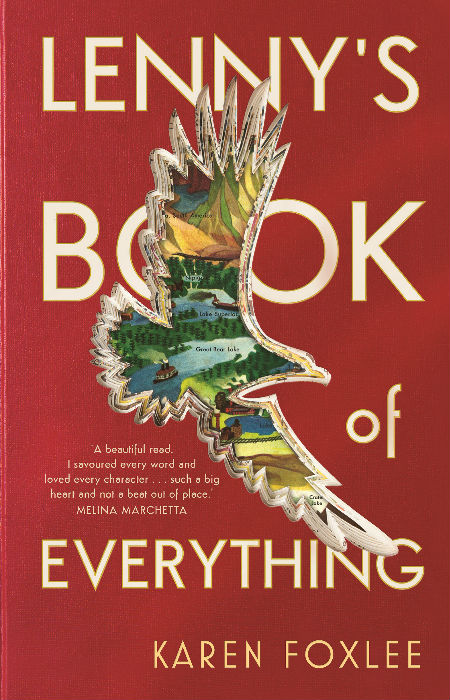
Lenny’s Book of Everything may have a black “heart feeling” at its core – it’s the term used from the start of the book to describe a sense that all is not well, in an unnerving ill-defined kind of way – but it is also a sensitively-written, heartfelt love letter to the enduring, all-encompassing power of love, caring and friendship, and how all of these vitally-important things come to mean so much more when they are threatened by events beyond our control and when we, even as children, are confronted by the fact that life isn’t always as magically wonderful as it appears in hopes and dreams.
(15) The Beekeeper of Aleppo by Christy Lefteri

Would we want to embark on such the kinds of perilously-fraught journeys refugee undertake? Let’s be brutally honest – none of us would, and it is to Lefteri’s credit and her gift for quietly evocative writing drenched in humanity and insight, that we come to understand that none of the many refugees coursing through the world want it either.
Of course, they don’t, but when events overwhelm, it’s all too easy to lose sight of that; thank goodness then we have books like The Beekeeper of Aleppo and articulate people like Christy Lefteri to remind us that we are all the same and that when people like Nuri and Afra lose everything, we all do, and we are all, all of us, the poorer for it, and that we must, without hesitation, always choose compassion and empathy over unthinking fear and condemnation.
(16) The Bookish Life of Nina Hill by Abbi Waxman

A love letter to books and reading as much as a clarion call to not make them your whole world wonderful though they are (or, at least, to be open to people and possibilities from beyond the wonderful world of reading and the people who happily inhabit it), The Bookish Life of Nina Hall is a diversionary, escapist delight with some very real life lessons folded in, giving it substance with the fun, brought to life by a writer who is clever, funny and has the kind of way with words that, were you to end up in a real life rom-com, would make her the perfect candidate for the wise and funny best friend.
(17) Darius the Great is not Okay by Adib Khorram
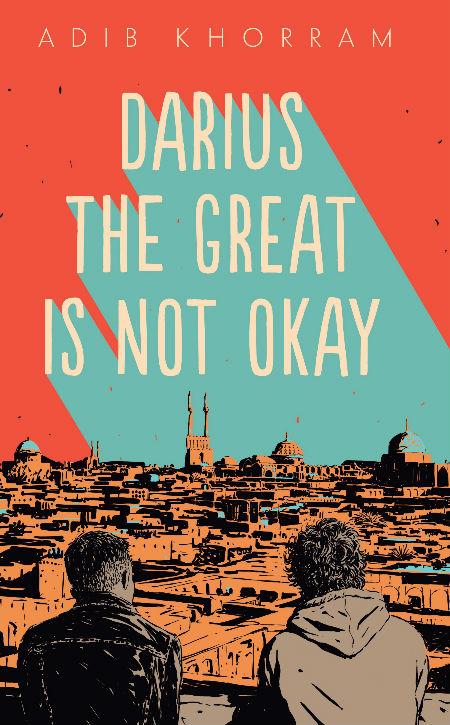
If you have ever felt like you don’t get life and can’t seem to knit together its disparate parts and influences in a way that makes, or begins to make, cohesive sense, read Darius the Great is Not Okay.
In this wholly-effecting, bright, light but deeply honest book, you will find a protagonist to fall in love with, to identify deeply with and to relate to in ways that will make you realise the contentment and deep, enriching sense of self that comes from finding out who you are, why you are matters and bringing that all together in life that, finally, makes far more sense than it used to.
(18) Hot Dog Girl by Jennifer Dugan

Being human, with its many emotional contradictions, never really makes much sense if we’re honest about it, but never more so than in the teenage years when what seems like a good idea, based on the knowledge at hand, isn’t always and when, like gorgeously enthusiastic, sweet, heart-on-her-sleeve Elle (stuck with the unloved and unused nickname to the end; she would be pleased), we find ourselves trying to fix it all while wondering if that’s even possible and hoping that everything will eventually work out somehow.
The best surprise of all is that life never follows the expected route, a truism that Hot Dog Girl, a quirkily contrary joy to its very genre-defying end, embraces with Elle-like gusto, happy to be both delightfully traditional and queerly revolutionary in ways that will make your heart sing, your soul laugh and your mind relax more than a little, assured that the bull in the china shop approach to life is not always an unmitigated disaster and can often, whether you expect it or not, be the making of you.
(19) Someone Like Me by M R Carey

It’s impossible not to read the stories of Liz, Zachary and Molly, and Fran and her devoted dad Gil, and the ancillary characters that populate their day-to-day lives including interloping ghosts from realms beyond, without being drawn deeply into what it is to live in fear, to have everything ripped away from you and yet still possess the power to fight back especially when it matters the most.
Carey weaves a tale which is both dark and troubling and yet innately compassionate and hopeful, granting us a viscerally-challenging ringside seat to life (and death) at its worst in a story which manages to delve hard and long into the very worst of humanity and yet somehow for all that proposes that despite the array of deadly threats against it, wishing for the best in life may not be such a fool’s errand after all.
(20) Washington Black by Esi Edugyan

The wonderful part of Washington Black is that remains authentically true to its recounting of the regressively-racist mores of the day, and sadly far too much of our contemporary world too, and how that has lasting effects on people, it also offers, in its exploration of Wash’s strange new journey and life around the world, the idea that change is possible, and that second chances, though encumbered by the past, aren’t ruined by them.
Edugyan’s wondrously-told book, rightly-described by American author Attica Locke as a “masterpiece”, is confronting, sorrowing and harrowing but it is also rich and true, hopeful and curious, alive with possibility, a realistic assessment of the power of the power of second chances to transform and bring alive, as long as you can understand that you will never quite leave the past behind you and that you must make decisions on a daily basis about the place it has in your present, and miraculously, your future.